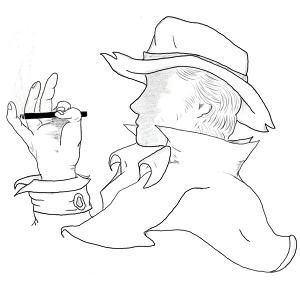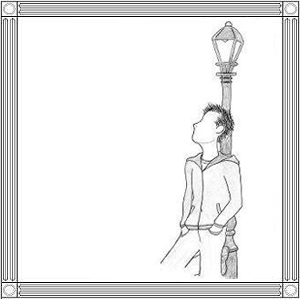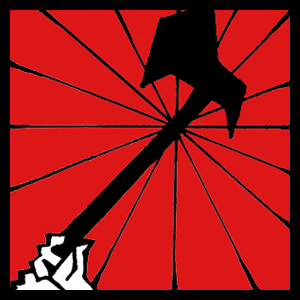196 – Support: a Blackhall Tale, Part 4 of 6
Welcome to Flash Pulp, episode one hundred and ninety-six.
![]() Tonight we present, Support: a Blackhall Tale, Part 4 of 6.
Tonight we present, Support: a Blackhall Tale, Part 4 of 6.
(Part 1 – Part 2 – Part 3 – Part 4 – Part 5 – Part 6)
[audio:http://traffic.libsyn.com/skinner/FlashPulp196.mp3]Download MP3
(RSS / iTunes)
This week’s episodes are brought to you by Pendragon Variety.
Flash Pulp is an experiment in broadcasting fresh pulp stories in the modern age – three to ten minutes of fiction brought to you Monday, Wednesday and Friday evenings.
Tonight, master frontiersman and student of the occult, Thomas Blackhall, finds himself in the gloom of a fatal cloud.
Flash Pulp 196 – Support: a Blackhall Tale, Part 4 of 6
Written by J.R.D. Skinner
Art and Narration by Opopanax
and Audio produced by Jessica May
 At first the distance from Blackhall to the inky tendrils which had drifted from the verdant green of the forest made it appear as if thick smoke had come wending from some unseen flame. As it moved closer, however, purpose and cohesion became apparent: a firm lick of darkness first touched, then enveloped, the laggard of Sour Thistle’s bolting honour guard.
At first the distance from Blackhall to the inky tendrils which had drifted from the verdant green of the forest made it appear as if thick smoke had come wending from some unseen flame. As it moved closer, however, purpose and cohesion became apparent: a firm lick of darkness first touched, then enveloped, the laggard of Sour Thistle’s bolting honour guard.
The brown furred weasel-cousin squealed in pain, and commenced thrashing.
It did nothing to slow the approach of the black mass.
“Follow,” was all Blackhall had opportunity to shout at the forest queen, then he shattered the still water with pounding legs, and, finding an acceptable depth, dived.
The bushman was quick to retrieve the talisman he’d long ago lashed about his neck with rawhide, and, popping the flat stone beneath his tongue, he breathed heavily of occult air. As the blue sky above his rippling view grew murky, he was relieved to find Sour Thistle close at hand, her hide swollen with the wet, but otherwise unharmed. Unknotting his trinket’s strand, they spent uncountable hours below, trading the stone between them.
The standoff wore at Thomas’ nerves, but, as time passed, he began to feel as if their position, while not permanently tenable, would at least hold against the threatening swarm. Even as such considerations ran through his mind, a fat ebon slug splashed down on the surface, and drifted in his direction. He could see the squirming shape clearly: A soot coloured, three-inch worm, not un-finger-like, which flexed and bloated as it struggled to bring its double set of fluttering dragon-fly appendages into action.
A leech, Blackhall realized, but worse – a winged leech.
His eyes were locked on the beast with fascination, and concern, but, whatever unnatural metamorphosis the thing had experienced to take its new form had also made it unsuitable to a life in the water. As Thomas watched, the parasite’s struggles ceased, and its glistening form became nothing more than floating detritus.
What followed was an afternoon of impatience. Although the pair of survivors made several attempts to simply walk to a point of safety, the swarm seemed intent to follow them, smothering the waves under their shadow.
In the end they were left in positions not so unlike those they’d had on shore – Blackhall standing, his shirt now flapping in the flow instead of the breeze, and the wolverine sitting, her claws playing impatiently with the muddy clay of the lake-bottom.
The thought of supper looming large in his growling stomach, Thomas began to consider a methodology of angling with his available instruments, which were few. He did not relish the idea of raw fish taken in with gulps of silty water, but Sour Thistle, he thought, might appreciate the freshness – and, given a protracted siege, he might have no alternative.
Could they last the night, he wondered? The week?
He looked up, and they were gone.
As his head cleared the surface, the final wisps broke westward – but they appeared dislocated and untidy, not a solid mass, but, instead, a speckled haze.
When once again upon solid ground, they surveyed their surroundings. The buck they’d seen break the wood-line, just prior to their escape, lay where it had fallen. Portions of its flesh had been eaten away, but most of its hide held – still, it’s bone structure was plainly visible beneath, as if the parasitic flock had suctioned its innards clean of blood, meat, and organs.
Sour Thistle’s guardians were there as well – the swiftest of the fishers had nearly made the sand when was overtaken. The collapsed fur recalled to Thomas’ mind a mink he’d purchased for his Mairi, but he was careful to keep the thought close.
“Should we bury them?” he asked.
“No, the carrion birds are our way,” she replied.
It seemed, to Blackhall’s eye, that there was a meager dinner left for the crows, but he again said nothing.
They spent the night at the lake’s edge, the frontiersman snacking on jerky from his reclaimed travel gear, and the lady of the forest cracking oyster shells fished from the mud of the shallows. The darkness invited little talk, as awareness of an impending threat depended heavily on their heeding the babble of the breeze. As dawn broke, however, and the smell of cooking bass lifted Sour Thistle from a sporadic slumber, Thomas continued the discussion he’d begun the day previous.
“It’s the flying plague I’ve come about. As regent of this domain, surely you must know their source?”
He tossed one of the seared fillets to the queen, who let it fall to the beach’s turf to cool. Her razor teeth had no concern for extra sand.
Under the cresting sun’s orange glow, the six cold fishers were barely visible, and yet Thomas noted Sour Thistles contemplation of their resting places.
“Our eyes will be eaten from our skulls before we arrive, but I will lead you none the less,” she replied.
Then their mouths were too busy with food for conversation.
* * *
The opening of their journey was largely spent retracing the route upon which Blackhall had approached, as the queen had chosen a remote location to rule her wild subjects from. The following days were taken at a careful pace, lingering as often by brook or river as possible, and always with ears cocked to the wind.
They did not encounter the swarm again until after they’d arrived.
Their destination became apparent to Thomas as the pair crested a wooded hill. Although it was still a good many miles off, and he could not see their true objective from the dense forest floor, he noted a cloud which remained unchanged, even as the branches about him rattled in gusts. As his view crept closer, he confirmed his suspicion that the thunderhead, gray against a sky filled with white fluff, was perfectly round in composition, no matter what the state of weather in the surrounding environs.
At the realization, Blackhall tutted to himself quietly, and Sour Thistle simply nodded.
Given the hush as she moved over long dried beds of pine needles, Thomas was unwilling to break the calm that had become the hallmark of their tour, but many questions alighted on his tongue in that moment.
Too many of his queries, he felt, were answered when they achieved the edge of the swamp.
The boundary between the spaces was plainly visible, and tight. The march of pines ceased, and heat seemed to bleed from the broad leafed plants, and thick vines, that marked the change in terrain. The damp air at the marsh’s brink set Thomas’ lungs to aching.
“I’d not expect to find such a sight anywhere this far north – if on this continent at all,” he said.
“It is the time to speak of the old man who lives within,” replied Sour Thistle. She’d come to a halt some yards away from the twisted landscape, and squatted now in the deep shadow of a fir tree. “The bloodsuckers are his. I have remained within my principality, and he in his own. There has been little confusion as to the perimeter. We have never spoken.”
With his eyes prying at the shade within, Thomas began to make troubling identifications.
“I believe that’s a cart – and those may be meatless asses, dead in harness.”
“Look harder, you’ve yet to find the worst of it,” the wolverine responded. “Have you examined the strange fruit which the thaumaturge harvests?”
The canopy above the bog was woven thickly between the trunks – another oddity for the frosty lands of the north – and it was only by craning into the swelter that Blackhall was able to uncover her meaning.
Strung by their feet, from the highest reaches, were the shapes of men. Their bodies, as well as their bindings, endured in various states of decay, and Blackhall’s view fell upon a nose-less face which he reckoned to likely belong to his former acquaintance, “Rosy Red” Archer.
“Squirrels have sung to me of the life drainers, though I had not encountered them myself until recently.” said Sour Thistle. “The incidents commenced sporadically, only to grow all too frequent. I know not why the ancient has become vengeful, but it is obvious all the same that his wrath has regularly breached our borders.”
With her tones still fading under the morass of insect song, a bent form stepped from the dim, as if summoned by her words.
(Part 1 – Part 2 – Part 3 – Part 4 – Part 5 – Part 6)
Flash Pulp is presented by http://skinner.fm, and is released under the Canadian Creative Commons Attribution-Noncommercial 2.5 License.
Freesound.org credits:
Text and audio commentaries can be sent to skinner@skinner.fm, or the voicemail line at (206) 338-2792 – but be aware that it may appear in the FlashCast.
– and thanks to you, for reading. If you enjoyed the story, tell your friends.
 My left leg demanded I back out of the doorway, but my right insisted that I lunge for the girl in an attempt to save her from whatever lurked in the store’s interior. While I was still mediating, most of my decisions were made for me.
My left leg demanded I back out of the doorway, but my right insisted that I lunge for the girl in an attempt to save her from whatever lurked in the store’s interior. While I was still mediating, most of my decisions were made for me. Mulligan had the flu, and was feeling less than enthused about the hours he’d spent pacing the cement sea of mega-stores and fast-food islands.
Mulligan had the flu, and was feeling less than enthused about the hours he’d spent pacing the cement sea of mega-stores and fast-food islands. I’ll admit it – Johanna was the closest to a post-apocalyptic friend that I’d had up until that point. Not that we talked much, I suppose, but she’d quickly took up a hose when it looked like my house was likely to burn down, and that sort of thing tends to make me like a person.
I’ll admit it – Johanna was the closest to a post-apocalyptic friend that I’d had up until that point. Not that we talked much, I suppose, but she’d quickly took up a hose when it looked like my house was likely to burn down, and that sort of thing tends to make me like a person. It had started an hour earlier, while he’d been sharing a breakfast of bran flakes with his wife of twenty years, Vanessa.
It had started an hour earlier, while he’d been sharing a breakfast of bran flakes with his wife of twenty years, Vanessa. If she was infected, Rebecca would eventually attempt to kill me. She might even if she was healthy. There was some chance that I could subdue her, then find a way to keep her alive by force feeding, but if she was sick, I’d become sick too – assuming I wasn’t already. What if she was fit and fine, and I accidentally contaminated her?
If she was infected, Rebecca would eventually attempt to kill me. She might even if she was healthy. There was some chance that I could subdue her, then find a way to keep her alive by force feeding, but if she was sick, I’d become sick too – assuming I wasn’t already. What if she was fit and fine, and I accidentally contaminated her?